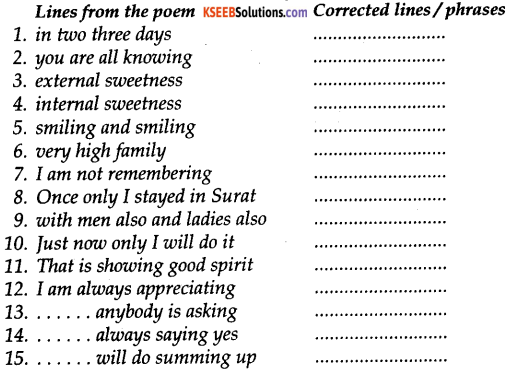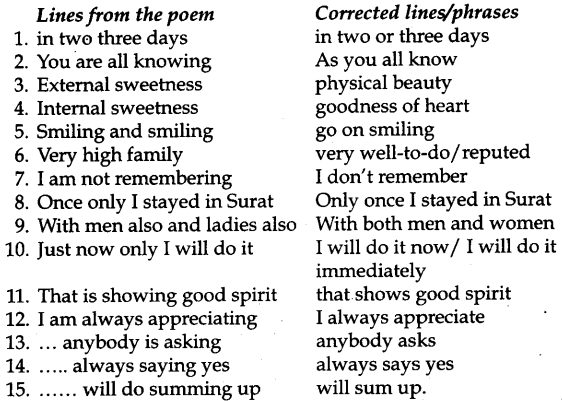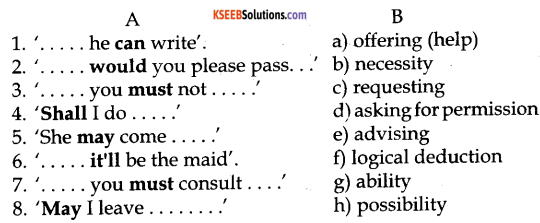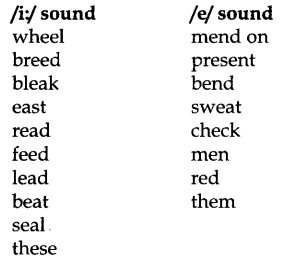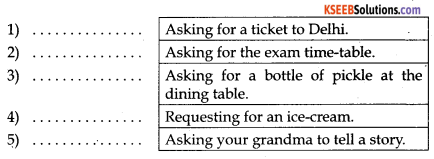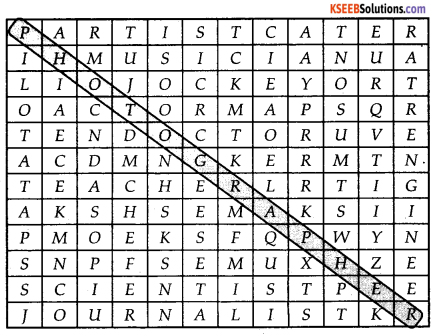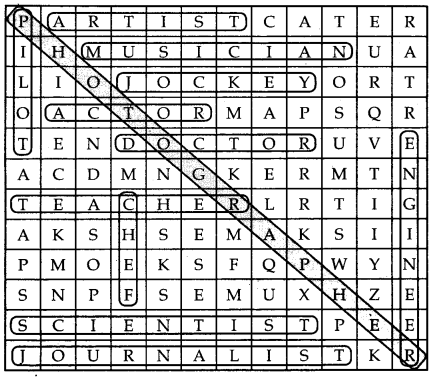By understanding the academic needs we have prepared the Karnataka State Board English Class 9 Solutions Chapter Wise. Our aim is to help the students by providing the question and answers chapter wise and help them to gain a good score in the exams. Before you start your preparation go through the chapters covered in this academic. So go through them and Download KSEEB Solutions for Class 9 English Poem Chapter 5 The Pencil’s Story Question and Answers Pdf for free.
Karnataka State Board Class 9 English Poem Chapter 5 The Pencil’s Story
The topics covered in Karnataka Secondary Education Examination Board Class 9 Solutions for English Chapter 5 The Pencil’s Story. The KSEEB Solutions Class 9 English Solutions Chapter 5 The Pencil’s Story Question and Answers are prepared according to the latest edition.The Chapterwise page will help the students to revise the syllabus during the exams.
The Pencil’s Story Questions and Answers, Summary, Notes
Comprehension:
C1. Answer the following questions:
Question 1.
Where does the poet see the pencil lying:
- in the beginning
- at the end of the poem?
Answer:
- In the beginning, the pencil lies upon the mantelpiece.
- At the end, it is found in a holder.
Question 2.
Why is the pencil’s life described as weary?
Answer:
The pencil called H and B (hard and black) is narrating its own story as it is a little pencil and lies upon the mantelpiece so as to be seen by everyone. It is used almost forty times a day. So it feels very tired.
![]()
Question 3.
When, according to the poet, is the pencil
- sad
- glad?
Answer:
- The pencil is sad when it is shortened and is not allowed to grow.
- The pencil feels happy when it is useful to the whole family.
Question 4.
What does the poet mean by ‘wits are rather dull’?
Answer:
The phrase ‘wits are rather dull’ can mean two things: when the pencil is used very often it becomes blunt. But the pencil gets overused if the writer has ‘dull wits’ or what can be described as a dull mind. He would then make mistakes and use the pencil, again and again, making it blunt.
Question 5.
What makes the poet say that ‘the pencil’s speech is always dark’ and that ‘it always makes its mark’? Explain.
Answer:
The poet describes the speech of the pencil as dark because the lead from which pencil is made is black. The phrase ‘make my mark’ has additional metaphoric meaning in addition to its literal meaning. Its deeper meaning is to do something that makes one famous or successful; to do something that is very important or meaningful. In the case of the pencil, as it serves others tirelessly, ‘make a mark’ can be interpreted as doing useful work.
Question 6.
Make a list of the rhyming words found in the poem. Rhyming words in the poem:
- B – see.
- life – knife.
- things – kings.
- about – out.
- missed – list.
- play – day.
- ought – short.
- joint – point.
- dark – mark.
- friend – end.
- older – holder.
![]()
Question 7.
Read lines 5 to 8. Who might be ‘Tommy’, according to the poet? How old would he be?
Answer:
According to the poet, Tommy might be the youngest family member. He might be around five to six years because his handwriting is mentioned as a ‘scrawl’ and the pictures he draws are of various themes which reveal his whims and fancies.
C2. Fill the columns after reading the poem carefully:
| Persons in the poem | The various purposes for which the pencil is used by them |
| 1. Tommy 2. Father 3. Mother |
…………………………………………….. To keep score when playing ……………………………………………… |
Answer:
| Person | Purpose for which the pencil is used |
| 1. Tommy 2. Father 3. Mother |
To draw untidy pictures like submarines, aeroplanes and cabbages. To keep score when playing. To prepare the washing list. |
Additional Questions:
Explain with reference to the context:
Question 1.
…………… when my wits are rather dull I’m sharpened with a knife!
Answer:
The line above is taken from the poem “The Pencil’s Story’. It is written by Florence Hoatson, an English poet. In this poem, she pictures the life of a pencil. A pencil is useful to everyone in a household. From a small boy to the housemaker everyone uses the pencil for writing various things. Therefore, it leads a very busy life. In the poem, the pencil narrates its daily routine.
Whenever a pencil is used, with continuous writing, it becomes blunt. So, it has to be sharpened with a knife to make it usable. So, the pencil says that whenever its wits are rather dull, meaning, whenever it becomes blunt, it is sharpened with a knife.
Question 2.
I’m just a little pencil, but I have a busy day.
Answer:
The line above is from the poem ‘The Pencil’s Story’ written by Florence Hoatson. While narrating its routine, the pencil says that though it is only a little pencil, it has a busy day. Everyone at home uses a pencil at one or the other time. Tommy uses it to draw all sorts of pictures from submarines to aeroplanes and cabbages to kings.
Miss Phyllis uses it to write a letter and the pencil makes it beautiful. The mother needs it to make her washing-list, while the father makes the pencil keep the score when he begins to play. Though the pencil is kept on the mantlepiece, it never rests there, because someone or the other in the household keeps using it. However, this does not make the pencil unhappy.
![]()
Question 3.
“When I am meditating I am bitten at the end”.
Answer:
This line is taken from the poem ‘The Pencil’s Story’ by Florence Hoatson. The pencil has moments of sorrow, though most times it is happy to be used well. Such moments are like the ones when its end is bitten continuously by the person who uses the pencil. Some people have the bad habit of biting the end of the pencil, whenever they stop to think. Such moments are unhappy for the pencil.
Multiple Choice Questions:
Question 1.
The pencil says its name is
A) H
B) L & H
C) H & B
D) B & L
Answer:
C) H & B
Question 2.
The pencil is handled …………… times a day.
A) forty
B) twenty
C) twice
D) fifty
Answer:
A) forty
Question 3.
The pencil is sharpened with a knife when it is
A) sharp
B) blunt
C) short
D) long
Answer:
B) blunt
![]()
Question 4.
The pencil draws all sorts of things when it is with
A) Mother
B) Father
C) Miss Phyllis
D) Tommy
Answer:
D) Tommy
Question 5.
Miss Phyllis writes a ………….. with the pencil.
A) picture of a submarine
B) picture of an aeroplane
C) lovely letter
D) picture of a king.
Answer:
C) lovely letter
Question 6.
Mother wants the pencil when she prepares the
A) grocery list
B) washing list
C) food
D) list of flowers.
Answer:
B) washing list
Question 7.
After constant use, the pencil becomes ………….. every day.
A) longer and longer
B) shorter and shorter
C) thinner and thinner
D) thicker and thicker.
Answer:
B) shorter and shorter
Question 8.
The pencil is very happy because
A) it is short
B) it is blunt
C) it is useful
D) it is useless.
Answer:
C) it is useful
![]()
Question 9.
When the pencil cannot be used any longer it is
A) put in a geometry box
B) put in a holder
C) kept on the mantelpiece
D) thrown away.
Answer:
B) put in a holder
Appreciation:
Question 1.
Can the pencil’s journey from the mantlepiece to the holder be compared to the journey of life of all human beings?
Answer:
The poem ‘The Pencil’s Story’ is a symbolic poem. Through this poem, the poet seems to give the message that our life should be like a pencil. A pencil suffers pain when it is sharpened. The more it is used, the smaller it becomes. Yet, it would leave its mark whenever it is used or whatever is written with it. This aspect gives the message that the more good we do, the better we feel and others feel about us. The pain and suffering in our life make us better and wiser human beings.
Question 2.
Pick out the lines from the poem in which you find examples of personification.
Answer:
Personification is giving life to inanimate objects. Throughout the poem, the pencil is personified as it speaks in the first person to describe its work and feelings. Miss Phyllis uses it to write beautiful letters and Tommy uses it to draw. The mother uses it for the washing list and the father uses it to note down the scores of the game. However, the pencil feels bad because it is never allowed to grow; it is made smaller and smaller by being sharpened.
It is shortened every day. When the knife begins to sharpen it; which is very painful, the pencil keeps quiet because the point has to be sharp. But the pencil is very proud of its achievement. Though its writing is dark, it is very useful and each time someone uses it, it leaves a mark. At the end of the poem, the pencil, which has become short and useless, reaches a holder, and this is the end of the pencil’s journey. In addition to the personification of the pencil, there is the personification of sorrow that seems to follow the pencil.
The Pencil’s Story by About The Poet:
Florence Mary Hoatson was an English poet, born on October 13, 1881 at Essex, England, who has written a number of collections of poetry. Her works include ‘God made little Robin’, ‘God, whose name is Love’, ‘Hands together, softly’ etc. She died on January 28th, 1964 at Gloucestershire, England.
The Pencil’s Story Summary in English
The poem ‘The Pencil’s Story’, written by Florence Hoatson, is a symbolic poem, which highlights how even small things can teach us a lesson in our life. In the poem, a pencil called H and B, is narrating its own story. It is the story of the pencil’s journey from mantelpiece to the holder just as our journey beams from birth and ends with death. The theme of the poem is centered on the usefulness of life.
The story of the pencil called H and B (hard and black) begins when it is a little pencil and lies upon the mantelpiece, so as to be seen by everyone. It is used almost forty times a day. So it feels very tired. The pencil feels happy as it is very useful to the whole family because Tommy, the young child of the family, uses it to draw untidy pictures from submarines to aeroplanes to cabbages; Miss Phyllis uses it to write beautiful letters; mother uses it to do her washing list and father uses it to note down the scores of the game.
However the pencil feels sad because it is never allowed to grow, it is made smaller and smaller by sharpening it. It is shortened every day. When the knife begins to sharpen it, which is very painful, it keeps quiet because the point has to be sharp. But the pencil is very proud of its achievement. Though its writing is dark, it is very useful and each time someone uses it, it leaves a mark. At the end of the poem, the pencil, when it becomes short and useless, reaches the holder. That is the end of the pencil’s journey.
Thus the poem ‘The Pencil’s Story7 is a very symbolic poem. Through this poem, the poet seems to give the message that our life should be like a pencil. A pencil suffers pain (when it is sharpened) to make itself brighter. The more it is used, the smaller it becomes but it would have left its mark whenever or whatever is written with it. This aspect gives the message that the more good we become, the more good others feel about us. The pains and sufferings in our life make us better and wise human beings.
We hope the information prevailed in this article is helpful for all the students of Class 9. The Karnataka State Board Solutions for Class 9 English Chapter 5 The Pencil’s Story Question and Answers pdf enhance your skills and score good marks in the exams. Stay tuned to get the latest information about the KSEEB Solutions Class 9 English Solutions.
